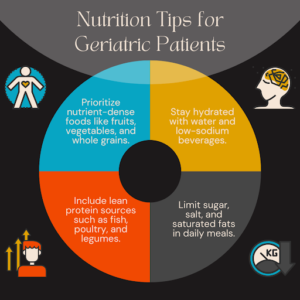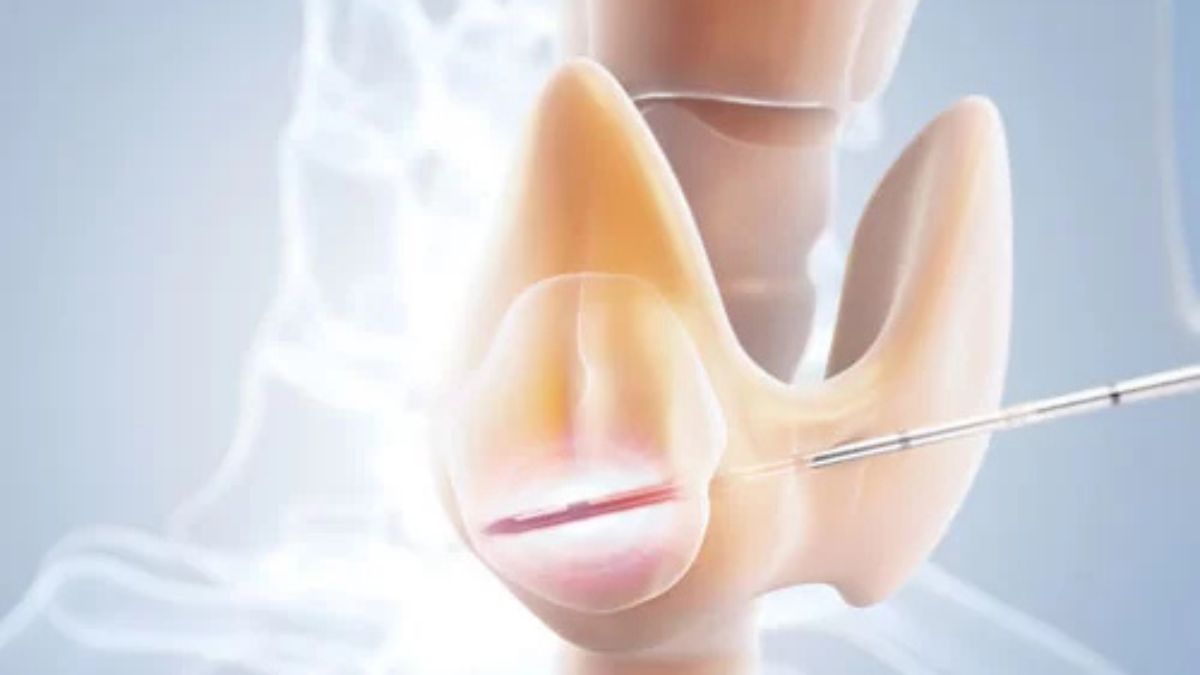HEALTH
Geriatric Doctors: Your Partner in Senior Health and Wellness

Health and wellness extend beyond maintaining physical activity and a balanced diet. For elderly people, care is needed with a special understanding of the challenges of aging. Geriatric doctors, also referred to as geriatricians, are trained professionals who understand what seniors face with their health challenges. Their specialty in comprehensive care ensures that seniors live healthy and fulfilling lives in their golden years.
This article looks at the significance of geriatric care, how geriatric doctors improve the health and well-being of seniors, and how they collaborate as allies in aging gracefully and with dignity.
Why Geriatric Health Matters
With age, medical needs become complex and require an understanding of the interplay of various conditions. Geriatric doctors are trained in this delicate balance and address the physical and emotional needs of seniors.
Health issues such as chronic diseases, mobility challenges, and cognitive decline often overlap in older adults, making it crucial to consult a geriatrician. When looking for geriatric doctors near me, seniors and their families can find professionals equipped to handle these overlapping complexities, ensuring personalized care plans.
The Growing Need for Geriatric Care
The U.S. aging population continues to increase. As per the U.S. Census Bureau, all baby boomers will be above 65 by 2030 and comprise a major percentage of the population. Such demographic changes clearly highlight the increased demand for geriatric doctors who could specifically provide medical care for older people.
The Centers for Disease Control and Prevention reports that 80% of older adults have at least one chronic condition, and 68% have two or more. The National Council on Aging reports that falls are the leading cause of injury for seniors, with one in four older adults experiencing a fall annually. Geriatric doctors manage these conditions and reduce risks by providing prevention-focused care.
Comprehensive Care for Aging Adults
Geriatric doctors do more than address isolated health concerns. They focus on the whole person, ensuring that seniors maintain their quality of life and independence.
Physical Health and Chronic Disease Management
For many seniors, chronic conditions such as diabetes, hypertension, or arthritis become a daily challenge. Geriatric doctors create individualized Chronic condition management plans that account for how these conditions interact. By closely monitoring symptoms and adjusting treatments, they prevent complications that could diminish a senior’s quality of life.
Early Screening and Assessment
Screening is essential in geriatric care. These screenings are followed by preventive measures, such as fall risk assessments and mobility evaluations. Primary care physician uses such Health screenings for seniors to prevent problems ahead of time and consequently minimize hospitalizations, thus promoting good health in patients.
Emotional and Cognitive Well-being
Geriatric physicians recognize that emotional health is equally important as physical health in seniors. The psychological effects of aging range from loneliness to difficulties associated with cognitive deterioration. They address anxiety, depression, and the early stages of dementia. They work together with families and caregivers to help patients receive proper care with dignity and effectiveness.
Preventive Care and the Geriatrician
Preventive care is the backbone of geriatric medicine. By preventing health risks from becoming serious, geriatric doctors enable older adults to stay independent and lead active lifestyles.
Nutrition and Lifestyle Evaluations
Although particular dietary recommendations or medication names will not be covered, geriatric doctors provide Health screenings for seniors and surveys general lifestyle factors that affect health. They advise on practices that promote longevity and suggest changes based on individual needs.

Vaccinations and Screening Programs
Routine vaccinations and common age-related condition screenings are critical in preventing the illnesses and complications associated with aging adults. Primary care physicians keep their patients updated on these essentials.
Partnering with Families and Caregivers
Older adults rarely face health challenges alone. Geriatric doctors know that families and caregivers are a vital part of the care plan, and work collaboratively to ensure the best outcomes.
Education and Support
Families are usually unaware of how to deal with complicated aging issues. Geriatric physicians educate patients on the conditions affecting their loved ones and provide strategies to support their well-being. Whether it’s managing medication schedules or understanding new diagnoses, this guidance is invaluable.
Caregiver Wellness
Taking care of an aging loved one is a stressful process that can strain both the body and the mind. Geriatric doctors help caregivers manage their stress levels and connect them with resources to prevent burnout. A healthy caregiver is better equipped to provide quality care.
Technology in Geriatric Care
In recent times, Senior wellness programs have become more capable of giving quality Primary health care through advancements in health technology. This includes the telemedicine method of digital health monitoring, thereby giving the seniors a timely and efficient treatment.
Telehealth for Accessibility
Telemedicine platforms present seniors with the chance to consult geriatric doctors from the comfort of their houses. This especially benefits those with mobility problems, or even living in rural areas. Thus, it means that elders receive topnotch Primary health care and do not have to move around so often.
Wearable Health Devices
Geriatric doctors can track vital signs using wearables such as smartwatches with health-monitoring features. These gadgets alert healthcare providers to any anomalies, ensuring early intervention and lowering the chances of emergency room visits.
Geriatricians and End-of-Life Care
End-of-life care is part of geriatric medicine, ensuring comfort and dignity in the last stages of life.
Palliative and Hospice Care Coordination
Geriatric doctors help families make choices about palliative and hospice care, ensuring the patient receives support that is sensitive to their wishes. These trusted Senior health clinics serve as advocates for the senior’s preferences, which brings peace and closure to the patient and their loved ones.
Emotional Support
Decisions on end-of-life care often have emotional implications. Geriatric doctors guide families through these challenging times with empathy and provide resources for coping with grief and loss.
FAQs
How do I know when it’s time to see a geriatric doctor?
When age-related health issues become complex or chronic, a geriatrician ensures better Chronic condition management and personalized care.
What are the differences between a regular physician and a geriatric doctor?
Geriatricians uniquely address the challenges of aging, considering physical, emotional, and cognitive health interactions.
Can geriatric doctors treat people with dementia or Alzheimer’s?
Yes, they develop holistic care plans that encompass cognitive decline support while supporting the family and caregiver.
Conclusion
Focusing on the holistic aspect, geriatric doctors improve the quality of life in older adults. Being experts at handling age-related problems and preventive care, geriatricians are indeed very important allies for seniors’ health. Whether in the form of early interventions, technology-driven solutions, or empathetic end-of-life care, geriatricians help aging adults live with dignity and purpose.
HEALTH
How Plastic Surgery Can Boost Your Confidence

In contemporary society, confidence is a very important aspect in our personal as well as professional lives. A lot of people have had insecurity concerns when it comes to their physical appearances, which can have an effect on how they relate with other people, as well as how they see themselves. There are some individuals who have plastic surgery as a means to improve their physical appearances, which can help them develop confidence in the process as well. But how is confidence increased through plastic surgery?
Understanding the Connection Between Looks and Confidence
Physical appearance often affects our perception of ourselves. Sometimes our perception of flaws and imperfections in our body and facial features affects our own confidence and feelings about our appearance. Such insecurities can affect our behavior in social settings and our performances at work. For some people, it is a struggle to reconcile their appearance and feelings about that appearance.
Plastic surgery bridges the gap for people wishing to overcome specific physical issues. With the help of plastic surgery, people are able to synchronize their outward look with their inner self-perception. In other words, individuals who undergo the surgery can overcome their anxiety regarding their looks and increasing self worth.
How Plastic Surgery Addresses Personal Insecurities
Among the top reasons why people undergo plastic surgery is the correction of zones within their appearance that have long made them unhappy with what they look like. It could be a rhinoplasty to remake the shape of the nose. It could be a facelift to remove the signs of aging. It could be breast augmentation to improve the body’s proportions that have long had a detrimental effect on their confidence.
As people feel better about their appearance, they also notice that their self-esteem improves. This liberation from their own criticism encourages people to feel at ease with others and to be who they are without fear. This emotional shift can be as significant as the physical transformation itself for people.
Psychological Gains Independent of Physical Alterations
Even though the effects of plastic surgery are seen and felt physically, there are psychological gains that can be more dramatic. Plastic surgery patients feel empowered and more capable of taking charge of their lives. They can gain a feeling of accomplishment through their desired reconstruction.
In addition, the increased self-confidence may impact every sphere of life. That is, it may bring increased motivation towards personal and career goals, frequent trying of new experiences, and healthy relationships. The positive feedback associated with increased confidence often ripples way beyond the initial cosmetic change.
The Importance of Realistic Expectations
While plastic surgery is proven to offer considerable emotional and psychological relief, it must be considered from a realistic angle. Plastic surgery is not a cure for all worries and problems faced in life. It is only an aid in ensuring an individual feels connected to his or her ideal self-image.
Additionally, before arranging for plastic surgeries to be performed, one should have very open conversations with professional surgeons to learn more about the end results. A person who embarks on plastic surgeries, yet maintains a very level-headed perspective throughout the process, stands to gain the most benefits concerning confidence.
Plastic Surgery as a Means of Moving Towards Self-Care
The decision to undertake plastic surgery should also be recognized as a form of self-care. This is because undertaking plastic surgery indicates that one is actually investing in their well-being. The decision to prioritize these aspects of one’s well-being indicates that they have finally turned a new leaf.
The motives for undergoing plastic surgery can represent significant aspects of personal growth and self-awareness. It is the realization that it is necessary to feel good and look good in order to be happy. When people treat themselves with kindness and respect, including through cosmetic enhancements, it contributes to a healthier relationship with their self-image.
Overcoming Social Stigmatisms of Plastic Surgery
While plastic surgery has indeed grown in popularity, there remains a degree of associated social stigma. Misconceptions regarding vanity or superficiality may prevent those who could genuinely benefit from the associate improvement in their quality of life. Nevertheless, attitudes are changing with more and more people realizing the mental health benefits associated with cosmetic interventions.
By talking about plastic surgery as a confidence booster, many would be judged less and more understanding. Self-confidence is a very personal thing, and everyone has the right to be comfortable and happy in their own skin, whatever way they feel that is attained.
Plastic Surgery Embracing Confidence
Plastic surgery may make important contributions to confidence through responses to physical insecurity and even psychological treatments. It is not a cure, but the right operation, with realistic expectations, can help individuals feel more consistent with their self-image and empowered to participate in life fully.
Ultimately, confidence comes from accepting and loving oneself, and for some, plastic surgery is an important and valuable part of that process. If people take good care of themselves and make smart choices, then they can use plastic surgery as a tool that can help inspire a renewed sense of self-worth.
HEALTH
Winter Care for Women: Preventing UTIs and Vaginal Infections

Introduction
Winter and high pollution periods can influence daily habits and natural immunity, increasing the risk of urinary tract and vaginal infections in women. Colder temperatures often lead to reduced water intake, layered clothing, prolonged indoor stays and changes in hygiene practices, all of which may affect urogenital health. At the same time, seasonal stress, lack of sunlight and lowered immunity can make the body more susceptible to bacterial and fungal infections.
Why Does Winter Raise UTI and Vaginal Infection Risk?
Winter can affect daily habits and body defences, increasing infection risk. The following factors contribute to this rise.
- Behavioural Drivers: People may drink less water in cold weather and delay urination, increasing bacterial concentration in urine. Tight, non-breathable clothing and dampness after exercise trap moisture and encourage microbial growth.
- Physiological Factors: Seasonal viral infections, poor sleep and stress may reduce immune strength in the urogenital tract. Reduced indoor humidity may cause dryness and micro-abrasions that allow infection.
- Environmental Contributors: Pollution may increase inflammation and weaken mucosal defence. Together, these factors explain the seasonal rise in cystitis and vaginal infections.
Common Conditions and What They Mean
Understanding common winter-related infections helps in early detection and treatment.
- Uncomplicated Lower UTI (Cystitis): Sudden urinary frequency, urgency, burning sensation and cloudy or strong-smelling urine. Needs timely care to prevent spread to kidneys.
- Pyelonephritis (Upper UTI): Fever, flank pain and nausea suggest kidney involvement and require urgent attention.
- Vulvovaginal Candidiasis: Itching, thick white discharge and discomfort; often linked to moisture, antibiotic use or diabetes.
- Bacterial Vaginosis: Thin grey discharge with a fishy odour, caused by an imbalance of vaginal bacteria.
- Sexually Transmitted Infections (STIs): May present with abnormal discharge and require targeted testing and partner treatment.
Prevention Checklist – Practical Winter Measures That Work
Before implementing preventive steps, it is important to understand how daily habits can influence infection risk.
- Hydration and Regular Voiding: Sip fluids throughout the day and avoid holding urine for long periods.
- Clothing and Hygiene: Wear breathable cotton underwear, avoid tight synthetic garments for long hours and change damp clothes promptly.
- Toilet Care: Wipe front to back and avoid douching or scented products that disturb natural flora.
- Post-Sex Habits: Urinate after intercourse, avoid irritants and use barrier protection when required.
- Manage Comorbidities: Maintain blood sugar if diabetic and complete full antibiotic courses when prescribed.
- Environmental Measures: Use indoor humidifiers to prevent dryness and shower after exposure to pollution.
- Proactive Health Behaviours: If infections recur, speak with a gynaecologist or women’s health specialist about preventive options.
When to Consult a Gynaecologist or Seek Urgent Care?
You should book a gynaecologist near me or women’s health specialist near me via Apollo 24|7 if you have fever with urinary symptoms, flank pain, persistent symptoms despite initial treatment, recurrent UTIs, severe vaginal discomfort or symptoms of an STI. Seek urgent care for high fever, severe flank pain, vomiting, dizziness or signs of sepsis. Teleconsultation may help with early guidance and referral if needed.
You may also consult a gynaecologist in Kolkata through Apollo 24|7 when symptoms persist or worsen.
What a Specialist Will Do – Diagnostic and Management Approach
During consultation, the specialist follows a stepwise evaluation and treatment process.
- Initial Tests: Urine dipstick, microscopy, urine culture if needed and vaginal swabs for candida, BV or STIs.
- Further Evaluation: Renal ultrasound or CT for suspected complicated infections; bladder scan or urodynamics for voiding issues.
- Treatment Approach: Simple cystitis may need empirical treatment. Vaginal infections like candidiasis and BV receive topical or oral medication. Recurrent cases require tailored therapy and sometimes multidisciplinary care.
- Follow-Up: Symptom review, advice on prevention and referral to urology if structural issues are suspected.
Preparing for Your Appointment on Apollo 24|7
Before your consultation, be ready with your medical details.
- Have Ready: Symptom timeline, recent test reports, current medications, allergies, pregnancy status and any imaging results.
- Booking Tips: Search terms such as gynaecologist near me, best gynaecologist near me, gynaecologists near me, best gynaecologists near me or women’s health specialist near me can help find suitable options.
- What to Expect: A clear diagnosis plan, treatment if required and personalised prevention advice. The specialist will guide if in-person tests are necessary.
Conclusion
Winter may increase the risk of UTIs and vaginal infections due to lower immunity, reduced hydration and lifestyle changes. Most infections are preventable with simple habits like staying hydrated, maintaining hygiene and wearing breathable clothing. If symptoms recur or do not improve, consulting a gynaecologist near me via Apollo 24|7 ensures timely diagnosis and proper care. Early medical attention helps avoid complications and supports better comfort and health during the colder months.
HEALTH
Minimally Invasive Thyroid Nodule Treatments Available in Singapore

Thyroid nodules are a common clinical finding, and while most are benign, they can cause discomfort, aesthetic concerns, or, in rare cases, indicate malignancy. In Singapore, the rise of routine health screenings has led to increased detection of thyroid nodules, and patients are often concerned about invasive surgery, scarring, and recovery time. Fortunately, minimally invasive thyroid nodule treatments offer effective alternatives that reduce downtime while delivering precise outcomes.
As an endocrinologist practicing in Singapore, I frequently see patients seeking guidance on safe and efficient nodule management. Understanding the range of treatment options, their benefits, and limitations is crucial for making informed decisions.
Understanding Thyroid Nodules
A thyroid nodule is a growth or lump in the thyroid gland, located in the neck just below the Adam’s apple. Nodules vary in size, composition, and clinical significance. They may be solid or fluid-filled (cystic) and can present as a single nodule or multiple nodules. While the majority are benign, features such as rapid growth, suspicious ultrasound characteristics, or abnormal lab results warrant further investigation.
Patients often experience anxiety upon discovery of a nodule. The first step is a thorough evaluation, including physical examination, thyroid function tests, and imaging studies such as ultrasound. This assessment guides the choice of treatment, from observation to minimally invasive interventions.
For patients seeking thyroid nodule treatment Singapore, it’s important to understand that not all nodules require surgery. Many can be managed effectively with targeted, minimally invasive procedures that preserve thyroid function and minimize complications.
When Minimally Invasive Treatments Are Appropriate
Minimally invasive interventions are typically recommended for:
- Symptomatic benign nodules causing discomfort, difficulty swallowing, or breathing issues.
- Cystic or predominantly cystic nodules that recur after aspiration.
- Nodules with cosmetic concerns, particularly when located in the visible areas of the neck.
- Patients wishing to avoid conventional surgery or those unsuitable for general anesthesia.
The decision depends on nodule size, type, symptoms, and patient preference. In Singapore, advanced imaging and procedural techniques allow endocrinologists to tailor treatment plans safely and effectively.
Common Minimally Invasive Treatments
1. Ultrasound-Guided Fine Needle Aspiration (FNA)
FNA is both a diagnostic and therapeutic tool. A thin needle is used under ultrasound guidance to extract cells from the nodule for cytological examination. While primarily diagnostic, FNA can also provide temporary relief for cystic nodules by aspirating fluid, reducing nodule size and pressure symptoms.
2. Radiofrequency Ablation (RFA)
Radiofrequency ablation is a cutting-edge technique widely used in Singapore. RFA delivers thermal energy through a thin electrode inserted into the nodule under ultrasound guidance, causing controlled tissue destruction. Over weeks to months, the treated nodule shrinks significantly, alleviating symptoms without the need for surgical removal.
RFA is particularly effective for solid and mixed nodules. Advantages include:
- Preservation of normal thyroid tissue.
- Minimal scarring, as the procedure is performed percutaneously.
- Short recovery time, often allowing patients to resume daily activities immediately.
3. Laser Ablation
Laser ablation uses focused light energy to coagulate nodule tissue. Similar to RFA, it is performed under ultrasound guidance and is suitable for nodules causing cosmetic or functional concerns. Laser ablation provides precise control over the treated area, minimizing damage to surrounding tissue.
4. Ethanol Ablation (Ethanol Injection)
Ethanol ablation involves injecting concentrated alcohol into cystic or predominantly cystic nodules, inducing fibrosis and shrinkage. This approach is highly effective for recurrent cysts and is minimally invasive, performed under local anesthesia in an outpatient setting.
5. High-Intensity Focused Ultrasound (HIFU)
HIFU is an emerging non-invasive technique that uses focused ultrasound energy to heat and destroy nodule tissue without any needle puncture. While still less common than RFA or laser ablation, HIFU is ideal for patients who prefer completely non-invasive treatment.
Advantages of Minimally Invasive Treatments
Minimally invasive interventions offer several benefits over conventional surgery:
- Reduced Recovery Time: Most patients can return to normal activities within a day or two.
- Preservation of Thyroid Function: Unlike surgery, which may require partial or total thyroid removal, these treatments preserve healthy tissue.
- Minimal Scarring: Small puncture sites or no incisions reduce visible scarring.
- Lower Risk of Complications: There is reduced risk of nerve injury, infection, and bleeding compared to open surgery.
Patient Considerations and Follow-Up
Although minimally invasive procedures are highly effective, patients should understand that results may vary depending on nodule size and type. Repeat treatments may occasionally be required, especially for larger nodules.
Regular follow-up includes ultrasound monitoring and thyroid function tests to ensure the nodule shrinks appropriately and to detect any new growth. In Singapore, clinics offering these treatments often provide comprehensive follow-up care, ensuring patient safety and long-term outcomes.
Lifestyle and Supportive Measures
While medical intervention is the cornerstone of treatment, supportive measures can enhance outcomes:
- Maintaining a balanced diet rich in iodine, vitamins, and minerals to support thyroid health.
- Avoiding excessive neck trauma or strain.
- Monitoring for symptoms such as neck swelling, voice changes, or difficulty swallowing.
Educating patients about their condition and providing reassurance are integral to successful management. Many patients experience anxiety upon nodule detection, and clear communication about treatment options, benefits, and risks can alleviate concerns.
Choosing a Specialist in Singapore
Selecting an experienced endocrinologist or thyroid specialist is critical. Clinics that specialize in thyroid care offer advanced diagnostic tools, procedural expertise, and personalized treatment plans.
For patients seeking thyroid nodule treatment in Singapore, it’s important to choose a provider who can assess whether minimally invasive techniques are appropriate and who can guide you through every step of the process.
Conclusion
Minimally invasive thyroid nodule treatments provide effective, safe, and cosmetically favorable alternatives to conventional surgery. In Singapore, advancements such as RFA, laser ablation, ethanol injection, and HIFU have revolutionized care, allowing patients to address nodules efficiently while minimizing downtime and preserving thyroid function.
Ultimately, early detection, proper evaluation, and individualized treatment planning are key to optimal outcomes. With expert guidance and minimally invasive interventions, patients can manage thyroid nodules confidently, achieving both functional and aesthetic satisfaction.
-

 TECHNOLOGY8 months ago
TECHNOLOGY8 months agoTop 10 Must-Read Stories from Kristen Archives You Can’t Miss
-

 TECHNOLOGY1 year ago
TECHNOLOGY1 year agoSky Bri Net Worth Revealed: How She Built Her Financial Empire
-

 TOPIC1 year ago
TOPIC1 year agoBasement Renovation Contractors: How They Tackle Structural Issues During Renovations
-

 TOPIC10 months ago
TOPIC10 months ago5 Reasons the //Vital-Mag.Net Blog Dominates Lifestyle
-

 BEAUTY1 year ago
BEAUTY1 year agoRevitalize Your Hair with Oribe Hair Care for Damaged Hair: Style It with Blue Dresses for Weddings and Events
-

 TOPIC9 months ago
TOPIC9 months agoTop 10 Articles from the ://Vital-Mag.net Blog That You Can’t Miss
-

 CRYPTO12 months ago
CRYPTO12 months agoCrypto30x.com Review: Is It the Right Platform for You?
-

 BUSINESS8 months ago
BUSINESS8 months agoTraceLoans Explained What You Need to Know
